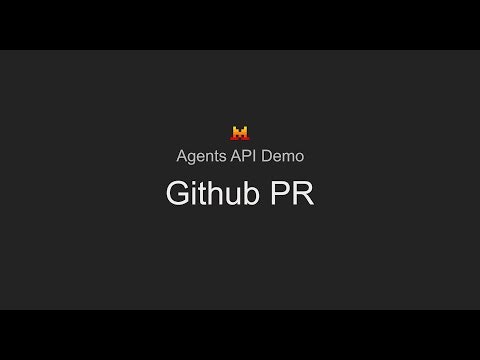Table of Contents
Overview
The world of AI is constantly evolving, and the demand for intelligent agents capable of complex tasks is growing rapidly. Enter Mistral Agents API, a promising platform developed by Mistral AI that empowers developers to build sophisticated AI agents. This platform offers a robust set of features designed to streamline the creation of interactive AI workflows, making it a tool worth exploring for those looking to push the boundaries of AI applications. Let’s dive into what makes Mistral Agents API stand out.
Key Features
Mistral Agents API boasts several key features that make it a powerful tool for building intelligent agents:
- Persistent memory: Agents can retain information across interactions, enabling more contextual and personalized experiences. This allows for more natural and efficient conversations and task execution.
- Tool integration (code execution, web search, image generation): Seamlessly integrate various tools to extend agent capabilities. This includes executing code, performing web searches, and generating images, allowing agents to handle a wide range of tasks.
- Multi-agent orchestration: Coordinate multiple agents to work together on complex tasks. This allows for the creation of sophisticated workflows that leverage the strengths of different agents.
- Scalable architecture: Designed to handle increasing workloads and user demands. This ensures that your agents can continue to perform optimally as your user base grows.
- Developer-friendly APIs: Easy-to-use APIs simplify the development process. This allows developers to quickly integrate the platform into their existing workflows and applications.
How It Works
The Mistral Agents API provides a framework for developers to define agent behaviors and connect them to various tools. Developers use the API to specify how the agent should interact with users, access information, and perform tasks. The platform then manages the underlying complexities of memory persistence and tool orchestration. This allows agents to perform compound tasks by intelligently utilizing the connected tools. In essence, the API acts as a central hub, managing the flow of information and actions between the agent and its environment.
Use Cases
The versatility of Mistral Agents API opens up a wide range of potential applications:
- Building intelligent virtual assistants: Create virtual assistants that can understand and respond to user requests with greater accuracy and context.
- Automating research or coding tasks: Automate repetitive tasks such as gathering information or generating code snippets, freeing up valuable time for more creative work.
- Integrating AI into enterprise workflows: Streamline business processes by integrating AI agents into existing workflows, improving efficiency and reducing errors.
- Educational tutoring systems: Develop personalized tutoring systems that can adapt to individual student needs and learning styles.
Pros & Cons
Like any technology, Mistral Agents API has its strengths and weaknesses. Let’s take a closer look:
Advantages
- Flexible tool integration: Easily integrate a wide range of tools to extend agent capabilities.
- Persistent context handling: Maintain context across interactions for more natural and efficient conversations.
- Simplifies orchestration of complex tasks: Streamlines the process of coordinating multiple agents and tools.
Disadvantages
- Requires technical expertise: Developers need a solid understanding of AI and API integration.
- Still in early development phase: The platform is still evolving, and some features may be limited or subject to change.
How Does It Compare?
When considering AI agent platforms, it’s important to understand the competitive landscape. Mistral Agents API offers a unique blend of features, but it’s worth comparing it to other options:
- OpenAI GPT Agents: While OpenAI GPT Agents enjoy broader adoption, Mistral Agents API offers potentially greater transparency into its underlying mechanisms.
- LangChain: LangChain boasts a rich ecosystem of tools and integrations, but it can require more configuration and setup compared to Mistral Agents API.
Final Thoughts
Mistral Agents API presents a compelling option for developers seeking to build sophisticated AI agents. Its flexible tool integration, persistent context handling, and focus on simplifying orchestration make it a powerful platform for a variety of use cases. While it requires technical expertise and is still in its early stages, its potential for creating intelligent and interactive AI workflows is undeniable. As the platform continues to evolve, it will be interesting to see how it shapes the future of AI agent development.

